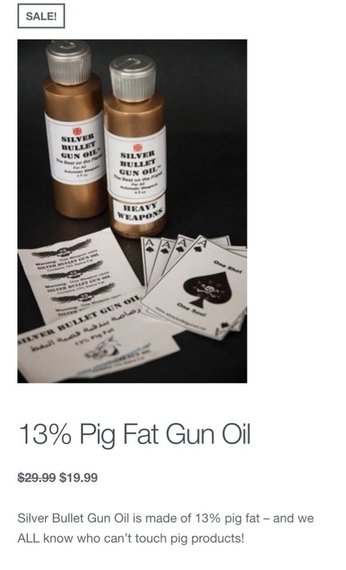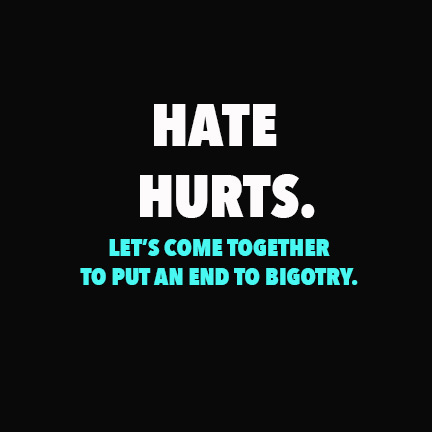
In late 2015, Imraan Siddiqi saw the expanding popularity of then-candidate for the Republican presidential nomination Donald Trump as a warning sign. He watched as the candidate's anti-Muslim rhetoric joined with American gun culture and racial discontent to make the already uncomfortable lives of American Muslims even more unbearable. Violence was increasing against Muslim communities nationwide.
Something had to be done.
Enter Hate Hurts, a project designed to track and bring attention to incidents of Islamophobic discrimination and violence across the Western world. Siddiqi created the project to deal with an increasingly tense historical moment for members of the worlds second largest religion who face bigotry and hatred for their beliefs.
I spoke with Siddiqi and researcher Roqayah Chamseddine about the organization and Islamophobia in the US.
Siddiqi joined the Council on American Islamic Relations, or CAIR, in Arizona in 2011. He has served on the CAIR AZ Board of Directors ever since. In October 2015, he became CAIR AZ's Executive Director.
Siddiqi launched the Islamophobia tracking organization Hate Hurts in December, 2015, as a supplement to his work with CAIR AZ. The project launched with a simple blog post:
The purpose of this site is to provide a resource in highlighting the epidemic of hate taking place - Not only in the U.S. - but beyond. It is our hope by updating this resource in real-time, that the world can no longer ignore the targeting of these communities.
"This project couldn't be headed by anyone better than Imraan Siddiqi because he remains a tireless advocate for all marginalized peoples," Chamseddine said.
Siddiqi described the atmosphere in the US in 2016 for Muslims and their allies as tense. The recent mythologizing of dipping bullets in pig's blood by Trump is a prime example of the climate of fear, hatred, and intolerance that is becoming reality in America.
The story, which is commonly understood to be a chain email fairy tale, goes like this:
"They were having terrorism problems, just like we do," Trump said. "And [General John Pershing] caught 50 terrorists who did tremendous damage and killed many people. And he took the 50 terrorists, and he took 50 men and he dipped 50 bullets in pigs' blood -- you heard that, right? He took 50 bullets, and he dipped them in pigs' blood. And he had his men load his rifles, and he lined up the 50 people, and they shot 49 of those people. And the 50th person, he said: You go back to your people, and you tell them what happened. And for 25 years, there wasn't a problem. Okay? Twenty-five years, there wasn't a problem."
The story is probably not true, but that hasn't stopped Trump's supporters from using it as a rallying cry (if you don't believe, search twitter for "pig blood bullet" actually no don't) and a direct message to Muslims in the US. Hate Hurts recently investigated a "Muslim-free" Gun Store that sells gun oil dipped in pig fat alongside shooting targets featuring the faces of President Barack Obama and Democratic hopefuls Bernie Sanders and Hillary Clinton.
This is a prime example, Siddiqi explained, of what happens when a violent and bigoted ideology such as the Islamophobia Trump and his supporters adhere to meets "American gun culture."
Hate Hurts combats this dangerous and harmful bigotry by humanizing the victims of Islamophobia. By tracking incidents of violence and discrimination, the organization hopes to put a face to the increasing incidents of hate crimes against Muslims in America. But that's not the only weapon to combat Islamophobia.
Another way to fight the relentless onslaught of negativity and soul-crushing news of Islamophobia in America is humor. Siddiqi excels at this, using his self-described sarcastic morbidity as a tool to poke fun at the very real bigots and racists who attack him regularly as well as the societal realities of the modern American opinion on Islam and Muslims.
An example of this is #WhereWereTheyRadicalized, a hashtag Siddiqi created in the wake of the San Bernardino shooting to point out that the vast majority of violence and terror in the US is done by white Christians- yet their churches, families, and communities are never subject to the scrutiny their Muslim counterparts are. #WhereWereTheyRadicalized pointed out this discrepancy in a wry way, making a serious point while also ridiculing the absurdity of such a double standard.
Since December, Hate Hurts has been accumulating an an exhaustive accounting of Islamophobic incidents in the US and worldwide. The site has become an essential resource for Muslim communities, journalists, and others throughout the West.
"It's a way to inform not only members of the Muslim community but other communities oftentimes affected by acts of prejudice and violence aimed at Muslims--one example would be the Sikh community, whose members are sometimes mistaken for Muslims due to their religious attire, language or even skin tone," Chamseddine explained.
That sentiment is reflected in the project's mission statement:
Bigotry is real, whether it targets the Muslim community, Sikhs and South Asians, or individuals from Middle Eastern and North African descent. Our goal is to create a definitive online resource - updating you on this unprecedented wave of bigotry, and its jarring impact on our communities....
Our goal is to raise awareness, provide in depth commentary and new content that will be used as an educational resource all over the world.
If you have a story of discrimination or harassment to report, contact Hate Hurts on their Tips page.
This story first appeared on my personal site.




